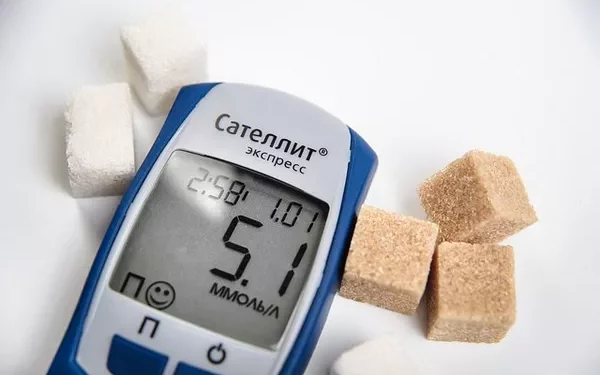Hypoglycemia, commonly referred to as low blood sugar, is a condition characterized by a decrease in glucose levels in the bloodstream below normal levels. While hypoglycemia is often associated with diabetes treatment, such as insulin therapy, another potential cause can be not eating enough or irregular eating patterns. This article explores the relationship between insufficient food intake and hypoglycemia, examining the mechanisms, symptoms, and management of hypoglycemia caused by inadequate dietary intake.
What is Hypoglycemia?
Definition
Hypoglycemia is defined as a blood glucose level below 70 mg/dL (3.9 mmol/L). It occurs when there is an imbalance between glucose production and utilization in the body, resulting in a decrease in available glucose for energy production.
Causes of Hypoglycemia
Hypoglycemia can be caused by various factors, including:
Diabetes Medications: Insulin and certain oral medications used to treat diabetes can lower blood sugar levels excessively if not balanced with adequate food intake.
Delayed or Missed Meals: Skipping meals, not eating enough food, or delaying meals can lead to a drop in blood glucose levels.
Increased Physical Activity: Intense or prolonged physical activity can increase glucose utilization, leading to hypoglycemia if not enough carbohydrates are consumed to replenish energy stores.
Alcohol Consumption: Drinking alcohol without consuming adequate food can interfere with glucose production and increase the risk of hypoglycemia.
Medical Conditions: Certain medical conditions, such as hormonal deficiencies, liver disease, and tumors affecting hormone production, can contribute to hypoglycemia.
Rare Enzyme Deficiencies: In rare cases, genetic enzyme deficiencies can impair glucose production or utilization, leading to hypoglycemia.
Symptoms of Hypoglycemia
Common Symptoms
The symptoms of hypoglycemia can vary depending on the severity and rapidity of the decrease in blood sugar levels. Common symptoms include:
Shakiness or Tremors: Feeling shaky, trembling, or experiencing involuntary muscle movements.
Sweating: Profuse sweating, particularly when not due to physical exertion or heat.
Hunger: Intense feelings of hunger, often accompanied by a desire to consume sugary foods.
Palpitations: Rapid heartbeat or sensations of irregular heart rhythms.
Anxiety or Nervousness: Feeling anxious, nervous, or irritable.
Weakness or Fatigue: Sudden onset of weakness, fatigue, or lethargy.
Headache: Persistent or throbbing headache, which may worsen with prolonged hypoglycemia.
Confusion or Difficulty Concentrating: Impaired cognitive function, difficulty concentrating, or confusion.
Blurred Vision: Visual disturbances or difficulty focusing.
Severe Symptoms
In severe cases, hypoglycemia can lead to more serious symptoms, such as:
Loss of Consciousness: Fainting or loss of consciousness, which requires immediate medical attention.
Seizures: Involuntary muscle contractions or seizures, especially in individuals with a history of epilepsy or neurological disorders.
Coma: Profound hypoglycemia can lead to a coma, although this is rare and typically occurs in untreated or prolonged cases.
Not Eating Enough and Hypoglycemia
Mechanisms
Insufficient food intake or prolonged fasting can lead to hypoglycemia by depleting glucose stores in the body and impairing glucose production. When the body does not receive enough carbohydrates from food, it relies on stored glucose (glycogen) in the liver and muscles to maintain blood sugar levels. However, glycogen stores are limited and can become depleted within several hours to a day without replenishment.
Liver’s Role in Blood Sugar Regulation
The liver plays a crucial role in maintaining blood sugar levels by releasing glucose into the bloodstream when needed. After meals, the liver stores excess glucose as glycogen. Between meals or during fasting periods, the liver breaks down glycogen into glucose to prevent hypoglycemia. If glycogen stores are low due to insufficient carbohydrate intake, the liver may struggle to maintain normal blood sugar levels.
Hormonal Response to Low Blood Sugar
When blood sugar levels drop, the body activates hormonal responses to increase glucose availability:
Glucagon: Released by the pancreas, glucagon stimulates the liver to convert glycogen into glucose and release it into the bloodstream.
Epinephrine (Adrenaline): Also known as adrenaline, epinephrine is released by the adrenal glands in response to low blood sugar levels. It stimulates the release of stored glucose and enhances glucose production by the liver.
Impact of Diabetes Treatment
For individuals with diabetes, especially those using insulin or certain oral medications, not eating enough or skipping meals can have profound effects on blood sugar levels. Insulin therapy is designed to lower blood sugar levels by promoting glucose uptake into cells. If insulin is administered without adequate carbohydrate intake, it can lead to excessive glucose lowering, resulting in hypoglycemia.
Risk Factors
Several factors increase the risk of hypoglycemia due to inadequate food intake:
Diabetes Medications: Insulin, sulfonylureas, and meglitinides can increase the risk of hypoglycemia if not balanced with appropriate food intake.
Physical Activity: Engaging in intense or prolonged physical activity without consuming enough carbohydrates to fuel energy needs.
Alcohol Consumption: Drinking alcohol without eating can interfere with liver function and exacerbate hypoglycemia.
Differentiating Hypoglycemia from Other Conditions
It’s essential to distinguish hypoglycemia from other conditions that can cause similar symptoms:
Hunger and Appetite Changes: Changes in appetite or hunger levels due to stress, medication side effects, or hormonal fluctuations.
Fatigue and Weakness: Feeling tired or weak due to inadequate sleep, overexertion, or underlying medical conditions.
Mental Health Issues: Anxiety, depression, or mood disorders can affect energy levels and cognitive function without affecting blood sugar levels.
Diagnosing Hypoglycemia
Medical History and Physical Examination
Diagnosing hypoglycemia involves a comprehensive medical history and physical examination. Healthcare providers will assess the patient’s symptoms, medical history, and potential risk factors for low blood sugar levels. Key elements of the diagnostic process include:
Medical History: Reviewing the patient’s history of diabetes, medications, diet, and lifestyle factors.
Physical Examination: Assessing signs of hypoglycemia, such as tremors, sweating, or changes in mental status.
Laboratory Tests
Several laboratory tests can help diagnose hypoglycemia and evaluate its severity:
Fasting Blood Glucose: Measuring blood glucose levels after an overnight fast.
Blood Glucose Monitoring: Checking blood glucose levels at various times throughout the day to identify patterns of hypoglycemia.
Glucagon Stimulation Test: Assessing the ability of the pancreas to produce glucagon in response to low blood sugar levels.
Continuous Glucose Monitoring (CGM): Using CGM devices to monitor real-time blood glucose levels and detect fluctuations.
Whipple’s Triad
Whipple’s triad is a diagnostic criterion used to confirm hypoglycemia:
Symptoms of Hypoglycemia: Documented symptoms such as tremors, sweating, or confusion.
Low Blood Glucose Levels: Measured blood glucose levels below 70 mg/dL (3.9 mmol/L) during symptoms.
Resolution of Symptoms: Prompt resolution of symptoms after consuming glucose or carbohydrate-rich foods.
Managing Hypoglycemia Due to Inadequate Food Intake
Immediate Management
For individuals experiencing hypoglycemia due to not eating enough, immediate management focuses on raising blood sugar levels quickly and safely:
Glucose Administration: Consuming glucose tablets, sugar-sweetened beverages, or foods high in fast-acting carbohydrates (e.g., fruit juice, candy) to rapidly increase blood sugar levels.
Glucagon Injection: If severe hypoglycemia leads to unconsciousness or inability to swallow, an emergency glucagon injection may be necessary to raise blood sugar levels.
Monitoring: Regularly monitoring blood glucose levels to ensure they stabilize within the target range after treating hypoglycemia.
Preventive Measures
Preventing hypoglycemia due to inadequate food intake involves proactive management strategies:
Regular Meal Timing: Eating balanced meals and snacks at regular intervals throughout the day to maintain stable blood sugar levels.
Carbohydrate Consistency: Monitoring carbohydrate intake and adjusting insulin or medication doses accordingly to prevent fluctuations in blood sugar levels.
Monitoring Physical Activity: Adjusting carbohydrate intake and insulin doses before and after physical activity to prevent exercise-induced hypoglycemia.
Alcohol Awareness: Limiting alcohol consumption and ensuring food intake when drinking to prevent alcohol-induced hypoglycemia.
See also: What Can Cause Persistent Hypoglycemia?
Conclusion
In conclusion, not eating enough or irregular eating patterns can indeed cause hypoglycemia, particularly in individuals with diabetes or those using medications that lower blood sugar levels. Understanding the mechanisms, symptoms, and management of hypoglycemia due to inadequate food intake is crucial for preventing complications and maintaining optimal health. By adopting a balanced diet, monitoring blood sugar levels, adhering to medication regimens, and seeking medical advice when needed, individuals can effectively manage hypoglycemia and improve overall quality of life. Regular education and support from healthcare providers are essential for managing diabetes and preventing episodes of hypoglycemia related to insufficient food intake.
Related topics:
6 Things You Should Look For to Identify Hypoglycemia
What Medication Do You Take for Hypoglycemia?
What Happens If Too Much Glucose is Administered During Hypoglycemia


























